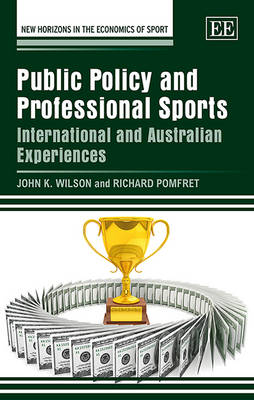New Horizons in the Economics of Sport
1 total work
Public Policy and Professional Sports
by John K. Wilson and Richard Pomfret
The book offers a unique focus on public policy, covering regulation and competition in the sports industry and its labour markets, governance issues including unethical behavior (corruption, doping, etc.), and public spending on stadiums and mega-events. It also offers an original combination of economic analysis and well-known international examples, from Australia, the United States and Europe, which have provided alternative organizational models of professional team sports. Australia is an interesting case study not only because sport holds a particularly important place in the national psyche but also due to the range of popular professional sports played. The book also analyses the globalization of many sports, the role of international governing bodies, and the difficulties in pursuing effective public policies in this context.
This book is a significant contribution to research in sports economics aimed at students and academics interested in both the economics of professional sports and public policy.
Contents: 1. Introduction 2. The Industry Structure of Team Sports 3. Labour Markets 4. Stadium Funding 5. Economic Benefits of Mega-events 6. Mega-event Bidding 7. Unethical Behaviour in Sport 8. Governing Bodies 9. Conclusions Index
